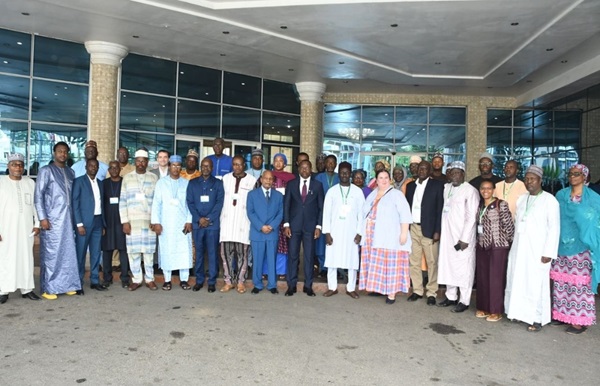
The Minister of State for Environment, Dr. Iziaq Adekunle Salako has called on the council of ministers of the Pan Africa Agency of the Great Green Wall (PAGGW) to prioritise collaboration, to combat desertification and land degradation in the Sahel and Sahara regions of Africa.
Salako, stated this while delivering the opening speech at the technical session of experts meeting of the 9th Ordinary Session of the Council of Ministers of the PAAGGW in Abuja, said the goal is to address challenges in the region and capitalize on emerging opportunities to increase the quantity of arable land.
Emphasising the interconnected nature of the global community, the minister stressed the importance of collaboration. He stated, “In our pursuit of technical excellence, we must recognise that our collective strength lies in our ability to learn from one another, to draw inspiration from diverse perspectives, and to work collaboratively towards common goals”.
“As we embark on the deliberations of this 9th session, let us keep in mind the profound impact that our decisions and innovations can have on our different countries, on Africa as a continent, and the world in general. The solutions we seek, the advancements we make, and the policies we formulate should all be rooted in a shared vision of a better and more sustainable future,” he added.
Salako urged the council of ministers to approach the journey with a spirit of curiosity and shared determination to shape an extraordinary future for the African continent.
“As experts in the fields of Forestry, land restoration, conservation, and allied specialities, the council of ministers of the Pan Africa Agency of the Great Green Wall will be relying heavily on your expert recommendations to guide their decisions. Let us, therefore, ensure that such recommendations are evidence-based, specific, measurable, achievable, relevant, and time-bound,” the Minister implored.
The executive secretary of agency, Brahim Said acknowledged the increasing difficulty of the task due to the effects of climate change, necessitating greater resources. He highlighted the importance of mobilising resources and the active participation of all stakeholders.
“The various interventions on the Great Green Wall require a well-oiled mechanism for the active participation of all the stakeholders concerned. The national coalition is a very important mechanism for adopting the leadership of our national structures on issues relating to the implementation of the GGW. There can be no good results on the ground without the participation of all sectors and all players,” said Said.
While acknowledging the momentum gained by the initiative and the interest shown by the international community, Said also discussed the proposed multi-state integration programme. He thanked the UNDP for its support and mentioned that the programme was examined and is now being finalized, seeking final approval from the ministers.
“In this process, we would like to offer our sincere congratulations to the countries that have launched their integrative programme, demonstrating their leadership at the national level. From an organisational point of view, the functional relations between our structures are also important elements for us to examine to ensure and guarantee good coordination,” Said added.
The director-general/CEO of the National Agency for the Great Green Wall (NAGGW), Dr. Yusuf Maina Bukar reiterated the commitment to addressing the impact of emerging climate change risks within and near the Great Green Wall Corridor. He stressed that efforts must be geared towards the effective implementation of the GGWI at regional and national levels.

